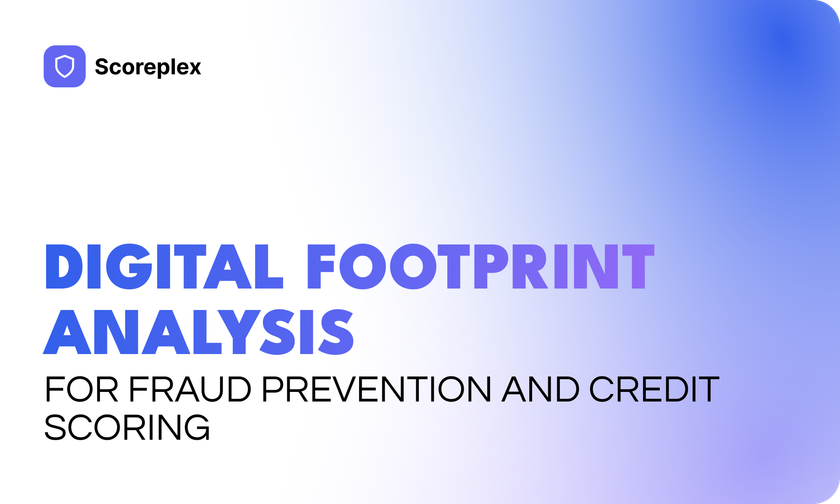A 'digital footprint' refers to the vast collection of data individuals leave behind through their online activities—both intentionally and unintentionally. Many people underestimate the extent and detail captured in their digital footprints, yet this information proves incredibly valuable for alternative credit scoring and fraud prevention.
Digital footprints encompass a wide range of online activities, including registered online accounts, forum participation, social media interactions such as likes and shares, reviews, and even passive data created by breaches or data leaks. Analyzing this information can significantly enhance the accuracy of credit scoring systems and the effectiveness of fraud detection tools.
Key Areas of Digital Footprint Analysis
1. Gambling and Betting Activity
The presence of accounts on gambling or betting platforms may indicate higher financial risks, especially relevant in short-term lending scenarios such as payday loans or Buy Now, Pay Later (BNPL) solutions.
- Type: Red Flag
- Quantification: Individuals registered on more than two gambling or betting sites typically receive elevated credit risk scores.
2. Marketplace Activity
Globally, around 2.8 billion people shop online, contributing to an e-commerce industry valued at approximately $6.8 trillion. Evaluating an individual's online shopping behavior—frequency of purchases, types of products bought, and preferred marketplaces—can reveal critical insights into financial discipline and solvency.
- Type: Solvency Indicator
- Quantification: Frequency, volume, and product categories of online purchases help indicate financial stability.
3. Paid Subscriptions
Active subscriptions to services like Spotify, Tidal, Amazon Prime, or premium educational platforms suggest disposable income, responsible financial management, and overall stability. Conversely, sudden cancellations of multiple subscriptions could signal potential financial distress.
- Type: Solvency Indicator
- Quantification: More than three active subscriptions generally indicate strong financial discipline and stable solvency.
4. Regional Platforms
Regular use of country-specific or regional online services provides strong evidence of an individual's genuine location and residency, reducing the likelihood of fraudulent activity.
- Type: Location Identification
Quantification: Consistent activity on local platforms confirms residency, significantly mitigating fraud risk.
The Special Role of Data Breaches
In today's digital landscape, data breaches frequently occur, and information leaked to the dark web has become an essential component of digital footprint profiling. Paradoxically, data breaches can offer valuable insights:
Individuals with legitimate online identities tend to appear in multiple breaches over time due to prolonged online activity, while fraudulent or artificially created identities typically show fewer occurrences.
- Type: Red Flag
- Quantification: Legitimate profiles average more than two associated data breaches, while questionable or potentially fraudulent profiles typically average fewer than two.
Conclusion
Leveraging digital footprint analysis not only improves the reliability of alternative credit scoring but also significantly enhances fraud detection. By harnessing the comprehensive data individuals unintentionally leave online, businesses and financial institutions can make more informed, accurate, and secure decisions.
About Scoreplex
Scoreplex provides alternative data for credit scoring and fraud prevention through digital footprint analysis using over 140 open sources.
By leveraging social media activity analysis, data leak monitoring, social profiling, and dynamic social graph generation, we enhance scoring models with insights that conventional data sources cannot capture.




